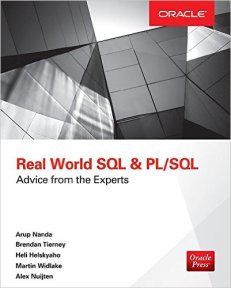Testing Methodology – Getting Community Information January 22, 2010
Posted by mwidlake in Testing, Uncategorized.Tags: knowledge, Testing
trackback
<Last post I tried to highlight that knowing specifically what you want to understand before you start testing is important and that it is beneficial to start with the booring official documentation. This is so that you can filter what is Out There in the web, as well as get a good grounding in what is officially possible.
There is no doubt that you can get a lot more information on Oracle features from the community than you can from the manuals and that it is often presented in a more easily understood and relevant way. But some of it is not right for your version or is just plain wrong. I can do no better than to refer to this recent posting by Jonathan Lewis on the topic. In this case, it is the persistance of old and now irrelevant information, perpetuated by the kind but flawed habit people have of pulling information together – but not testing it.
Treat everything on the net with caution if it has no proof. Even then be cautious 🙂 – I know I have “proved” a couple of things that turned out to be misunderstandings…
You can of course post to forums to ask for information and help, and people will often come to your aid. But you are often not really understanding the subject by doing that, you are just learning facts. It’s like learning the dates of the two World Wars and not understanding why the wars occured. I would point you to this posting by Lisa Dobson from a couple of years back, which makes the point about what you stand to learn, and also says something about how to ask for help. If it helps you to do the “right thing”, think of it selfishly. You will get better and more specific help if you have already looked into your issue and can ask specific questions. Also, if you properly learn something rather than just get a couple of facts about it, you are less likely to look foolish when you repeat those facts in a context they are not valid in. And you will.
Sorry, side tracked a little into one of my pet annoyances. Back to topic.
I want to know about SQL AUDIT. So I google SQL AUDIT ORACLE. Lots of hits. Let’s start filtering. First off, anything by “experts-exchange” and the other pay-for forums can forget it. Sorry guys but if I am going to spend money I’ll buy a manual. I will also ignore any stuff by sites that constantly suggest you go on training courses on boats with them or are “Team America” {everyone seen the film by Trey Parker? Puts the claim “We are the American Team” into a different light…}.
Now I go and look at the sites and I try making my search more intelligent, maybe adding in the word DBA_AUDIT_TRAIL and the like. I try and think what words and phrases someone explaining the topic would use which would not be common for other topics. That is why I often use database object names and commands in my searches.
In the case of SQL AUDIT, there are plenty of sites that generally pull together the basics from the manuals and tell you how to audit a few things and see the results and give some nice examples. It gets you further forward, but it’s mostly not very detailed. Just cookery instructions on what to do but not how it works. Thankfully, there is an excellent article by one of the experts in the field, Pete Finnigan.
Maybe I could have replaced this post by simply suggesting you just go to Pete’s web site, read what is there and follow the link from it to the ones he likes. It would work for the topic of SQL AUDIT. However, although it is always good to go to the sites of people you know and trust, it is always worth doing a google and going beyond the first page or two of results. Those first pages are mostly for a handful of very popular sites and sources. A new article or someone who is relatively unknown but has the answers you need may be further down the list, like pages 3 or 4. It is worth 5 mins just checking.
However, you are not likely to find everything you need. Certainly with SQL AUDIT you won’t find much about performance impact other than bland and not-very-helpful generic warnings that “Use of SQL AUDIT can carry a significant performance overhead”. How much overhead? for what sort of audit? And how do you know? In fact, when searching I found this, admittedly old, comment by Pete about there being relatively little “out there” about performance impact of Auditing. That made me smile, as that information was exactly what I was after.
*sigh*. The information I want does not seem to be out there. I need to do some testing.
That is for the next post (“at LAST”, I hear you all cry).


[…] failsWhat are Consistent Gets?BLEVEL and Height of IndexesQuick TipsMore on COMMAND_TYPE values.Testing Methodology – Getting Community InformationDecoding high_value and low_valueUsing AWR data for OS informationPrivileges required to […]
[…] Testing Methodology – How To Test January 26, 2010 Posted by mwidlake in Testing, performance. Tags: explain plan, performance, Testing trackback <Previous Post… […]
Martin,
For your googling I suggest this
http://www.miracleoy.fi/search.html
to much Oak Table promoted one but better than googling with other filters.
Hey, you have a little picture for your comments now too:-).
Thanks for the tip Coskan. The Oak Table are not a bad bunch of people to go seeking help from. I’ve heard some of them are quite good… ;-).